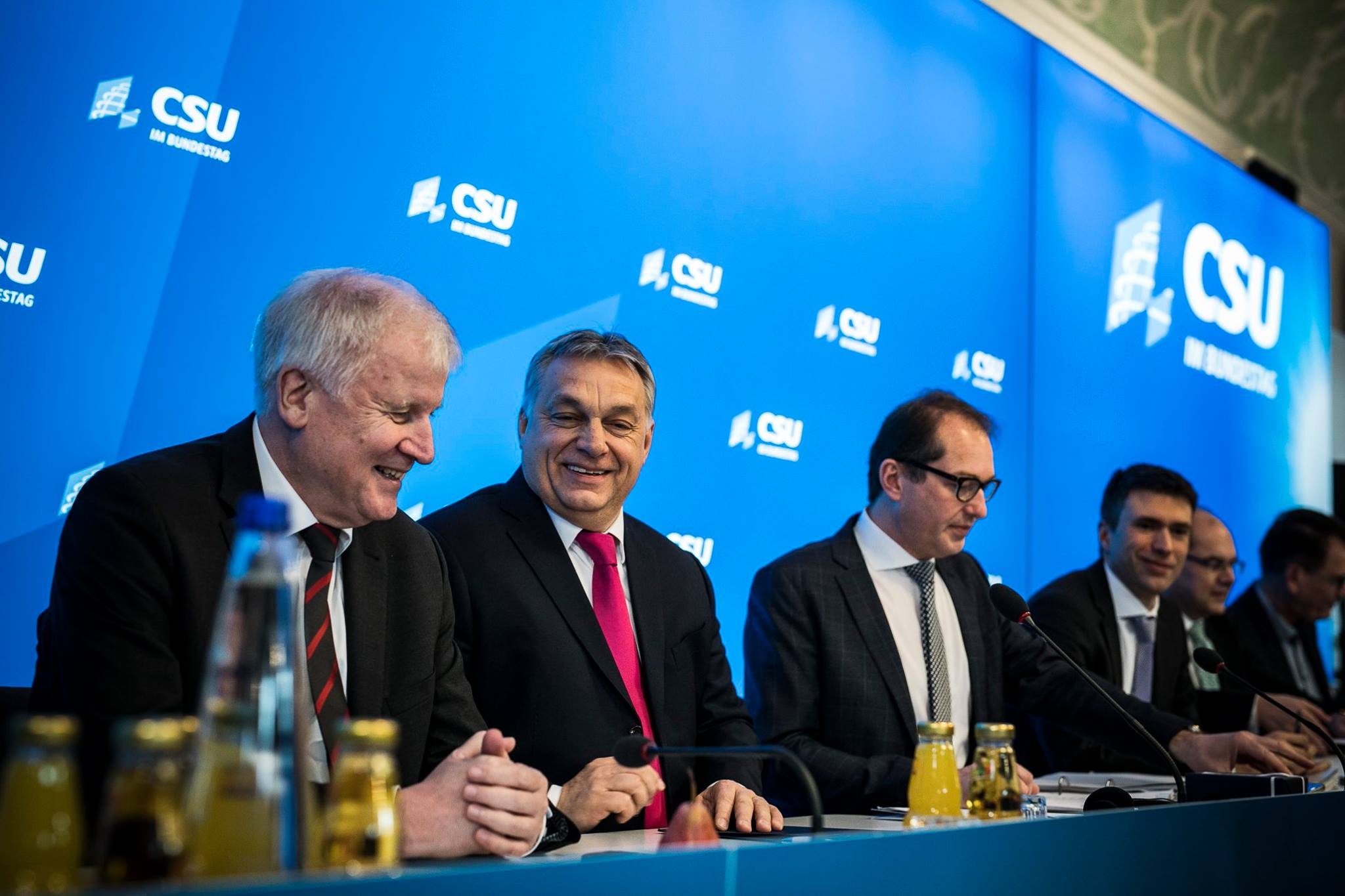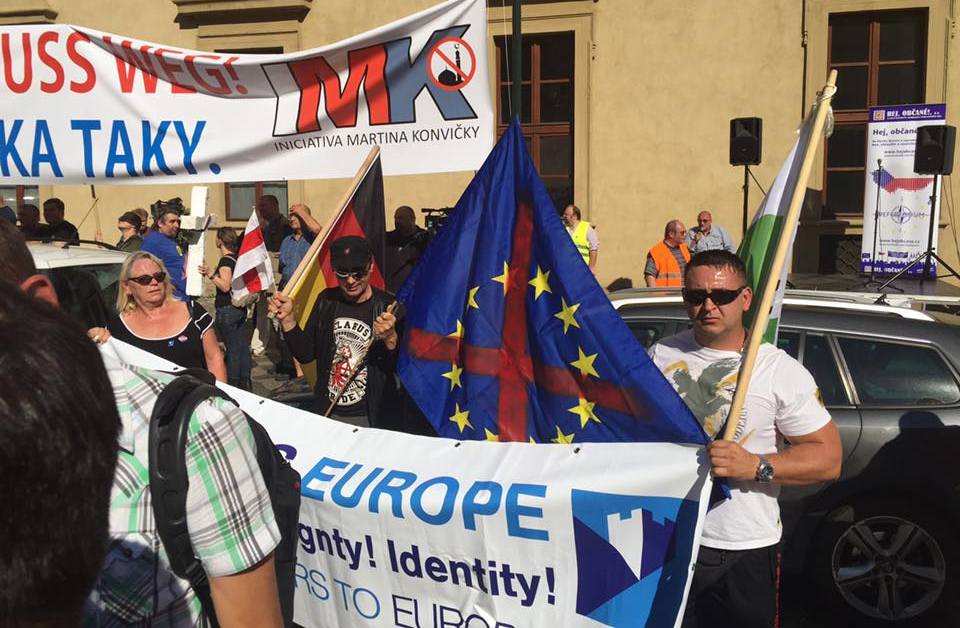By Thibaud Cassel.
European Union – On Sunday April 15th the French President Emmanuel Macron gave a TV interview of around three hours. Halfway between his comfortable election in last May and the European elections of 2019, the event had the form as well of a mid-point review as of a major policy speech. It indicated that the relation of France with Central Europe turns into a fiasco.
We will analyse in this first part the face-to-face of ”two Europes” that do not understand each other. A second part will be dedicated to the difficult day afters of the French-German relationship under the pressure of the Visegrád Group.
I. Don Quixotte and the mills of illiberalism
1. Five minutes of hundred sixty: Europe bothers Emmanuel Macron
The European affairs were handled within a few minutes at the very end of the show. Between what was said and what was not, this is another reason for some concern.
As a liberal Tartuffe, Emmanuel Macron turned his eyes away from what he does not want to see, well served by the opening words of the journalist who deserves to be quoted entirely : “How can you rebuild Europe with former communist countries that oppose the hosting of refugees or foreigners; with the Europe of Viktor Orbán and his speeches that remind the pre-war times. Honestly !”
And the head of the French State to assure : ”I do not share any of his values“, the content of which he outlines a bit later on : “(…) do not respect democracy any more ! Let’s flout the independence of our magistrates. Let’s move forward !”
One should define those words for what they are : harsh and disproportionate attacks against governments elected – with a strong support – by their citizens at the head of member countries of the EU that Mr. Macron has the pretention to rebuild. This ostracism seems at the least to be a roundabut road ! The stroke is direct – for not saying coarse – in order to stupefy the French and to distract them from observing the facts.
2. Macron’s France and the V4, two completely diverging economic policies
The French President spoke a lot about the economy of his country. This gives us the opportunity to compare the options retained on both sides of Germany. Poland has just increased the benefits for seniors and improved the infrastructures in the provinces. It is true that Central Europe does not dispose of a sprawling welfare state like France does. But the trend is indeed to defend the elder ones and not to squeeze them. Poland has also been developing for two years an ambitious family policy in order to revitalise birth-rates. This ambition is a common one in Central Europe, as the World Congress of Families organised in Budapest by the government of Orbán did show it. For the countries of the Visegrád Group, the generational renewal is an essential responsibility of a nation, and the role of the State consists in supporting it.
Poland has also announced recently its will to reduce the rate of Income tax for little companies from 15% to 9% – being the lowest rate in Europe – following the example of Hungary that reduced the rate of Income tax from 19% to 9%. In Poland like in Hungary, the edification of a national capitalism that would be able to develop despite of the foreign competition, corresponds to the will of emancipation from a too heavy foreign tutelage and to support the autonomous development of the country by using its own resources.
As Guillaume Bernard quite properly pointed out, taxation policy consists according to Macron ”for avoiding bankruptcy to prove to the creditors of France that he is still able to squeeze the captive and sedentary classes while he favours the rentability of capital investment that might be non-sedentary.”
3. Immigration of colonisation, the absolute taboo
The V4 does not only defend the ones that are there before the ones that are passing by concerning economic issues. The migration issue is of course at the center of the contention. The subject of concern No 1 of the Western Europeans is tackled from the root by the Eastern European governments. This is the reality that obliges Emmanuel Macron and his entourage to demonize the courage and the patriotism that have not deserted Central Europe. To be convinced of this, one merely has to watch the propaganda film broadcast by M6 on the evening of the Hungarian elections that was subject to an open letter from Ferenc Almássy. Although there is an alternative to multicultural fatalism and to the erasing of European nations out of History, Emmanuel Macron refuses to admit that.
4. Ideas paid for the full price
This dogmatic rigour contrasts with the considerable concessions that the French Government does tolerate on its own soil. Without dwelling on the lost neighbourhoods of many French towns, the recent blockades of universities and the riots around Notre Dame des Landes are taken philosophically. As if a kind of anarchy were much better tolerated on the French territory than emerging national – and perfectly democratic – autonomies within the EU.
This war that Macron declares against Central Europe is first of all a huge waste for both sides. As both are neighbours of Germany, their entente would not be too much in order to rebalance the power relations within the EU that are broken today for the – short term – benefit of Germany.
The urgency is indeed to work hand in hand in order to put the kibosh to the German industrial concentration, in order to question a continental specialisation that would consecrate Germany as the main factory of the continent, or at least the one with the highest added value.
This momentum of ”structural deindustrialisation” is particularly related to the Euro that is first of all detrimental to France and the Mediterranean countries, renamed at this occasion and with some contempt ”PIGS” (Portugal, Italy, Greece, Spain). France could have taken the head of this Latin Europe, but it indulged in the illusory as well as flattering role of a winner ex-aequo. Central Europe is benefiting from the flourishing German industry for which it plays the role of a workshop. But it is also overwhelmingly depending on the conditions dictated by the investor. Today, there is a power struggle over the energy union that might ruin every autonomy of the Central European countries to the benefit of Berlin and the European Commission. France might play the role of a referee in this contention with huge consequences, but the ideological agenda is stronger than any consideration of realpolitik.
From a strategic error to a civilisational mistake
On the European stage we can say that France is keen to be seen only with Germany for having a ”big design” that is still unclear at this time. Even Europe seems to be too small for the En Marche frenzy.
Macron prefers to build on Saudi sand than on Polish soil. He relies on the last remnants of the international importance of France. But then it does not shine by its own sparkle but only through the reflection of American interests. In doing so, he sacrifies the credibility of France as a countervailing force within the community of nations, and nips furthermore in the bud any project of European defence : the Atlantic community takes precedance on the continental European one.
These mistakes will not remain without any consequences
France pretends keeping up with a European post-civilisational revolution and a policy of global importance. It might become disenchanted as fast with the first as with the second one, in front a Central Europe that is humble, tenacious and more reliable in the eyes of Germany.
The second part of this article will be dedicated to this game of alliances between Germany, France and Visegrád.




